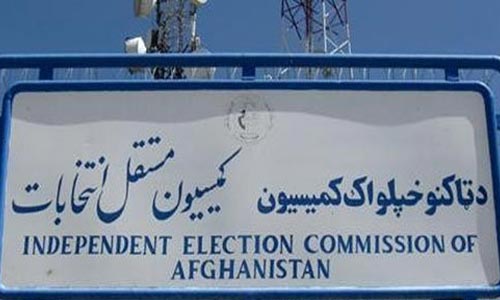It is true that elections are not the only principle for democracy, but are the main way for the implementation of democracy. Democracy is misshaped without election. The principle of representation in democracy considers it as indisputable requirement. As it is not possible to represent the people with appointment, neither it is possible to practice democracy with permanent representation. The repeated failures in holding elections have seriously undermined the democratization process in Afghanistan. The Afghan parliamentary election has been delayed for more than three years and still it is in an ambiguous fate. The legal term of Provincial Council is also going to be over. The legal working period of some senators has also come to an end.
Failure to hold district the council’s election has completely divested possibility of holding the legal loya jirga. After the formation of the National Unity Government holding the Loya Jirga was required but due to the lack of district councils, the Loya Jirga was not held and the term of national unity has expired with the composition of the Executive Directorate. Thus, the constitutional provisions regarding timely holding of provincial councils and presidential elections were never carried out in accordance with the law. The legal gap of the Provincial Council and the Meshrano Jirga may legitimately raise some legal questions regarding illegitimacy of many actions.
Concerning the timely election failure, IEC is the main responsible entity, but not the only one. The disagreement between the political parties and influential institutions on ongoing issues related to the election and the prolongation of the election reform process after the formation of the national unity government was also a part of problems. The hesitation of some of international partners to fund and hold a timely election was one of the other factors. However, after resolving these problems in holding the recent parliamentary election, it was proved that the main problem was the lack of capacity in the Independent Election Commissions of Afghanistan.
In spite of huge expenses, the recent parliamentary election has proven that no major work has taken place in the commission over the past years, and works has been just done as projects. Undoubtedly, if the huge cost of the election processes was properly managed, we would not have been stuck now. With the voting digitization at the last stage of election process no successful results was achieved but wasted a lot of fiscal resources. The biometric process is a technical job but it was not technically decided, and so the technical result was not obtained. In addition, the scans which obtained from voters profiles are lacking the required information and cannot be used in other administrative processes.
Overall, the IEC did not succeed in ensuring transparency. No one think that biometric device could contribute in transparency of election process comparing to the previous elections and neither could decrease the expenses. Even, many of IEC workers did not know how to turn on the devices, let alone to cover large crowds of people; with witnessing many types of problems, the situation tells us if technology is not used properly, it may double the problems instead of providing a viable solution.
Capacity building is the first step in using technology but the election commissions have not reached this step despite imposing a lot of expenses. IEC officials also confessed the issue with delay of presidential election to improve capacity both in center and provincial levels. The Afghan government, the United States and UNAMA have also welcomed the decision hoping to make necessary reforms in IEC. Foreign institutions and donors as well as the Afghan people, have clearly realized that this commission with existing capacity and structure, would never be able to hold the next year’s presidential elections fairly. The Afghan government has denied all other justifications in delaying the presidential elections but only emphasized on the capacity-building factor in election commissions.
Nonetheless, preventing from illness is better than treatment. It is relatively a good decision to get ready instead of launching another poor process. Insisting on holding timely presidential election was right when the goal of legislators were fulfilled. The goal of the legislator is to hold a transparent, free and fair election while this is not possible with the current condition of IEC. In addition, Given the climate condition in Afghanistan, the initial stages for holding presidential election are not feasible in the winter season and it is neither possible for candidates to campaign during this season. While in terms of legal opportunities, the proper and equal bed of participation should be provided equally for all the people. At the time of the constitutional amendment, it should be one of the cases to be corrected.
Anyway, after the announcement of the delay in the presidential election IEC and other related institutions should make serious efforts in proper use of this opportunity to make necessary changes in the election commissions. In addition to the capacity building program and elimination of unqualified employees from both Central and provincial level is serious need for structural changes in commission. Reforms are not limited to removal and capacity building of just ordinary people. Therefore, it is imperative that reforms are made at the core level of the IEC, and if necessary, these reforms should include the commissions’ leadership.
Moreover, changes to the duties and the way of communication and coordination between the IEC units are also necessary. Otherwise, we will not be able to satisfy the election bodies and the international community by making minor improvements. The international community has long argued that they would not financially contribute without necessary reforms in the Afghan election commissions.
Home » Opinion » The Needs for Fundamental Reforms in Election Commissions
The Needs for Fundamental Reforms in Election Commissions
| Sayed Asif Hussaini/ Translator: Moh Zahir Akbari

